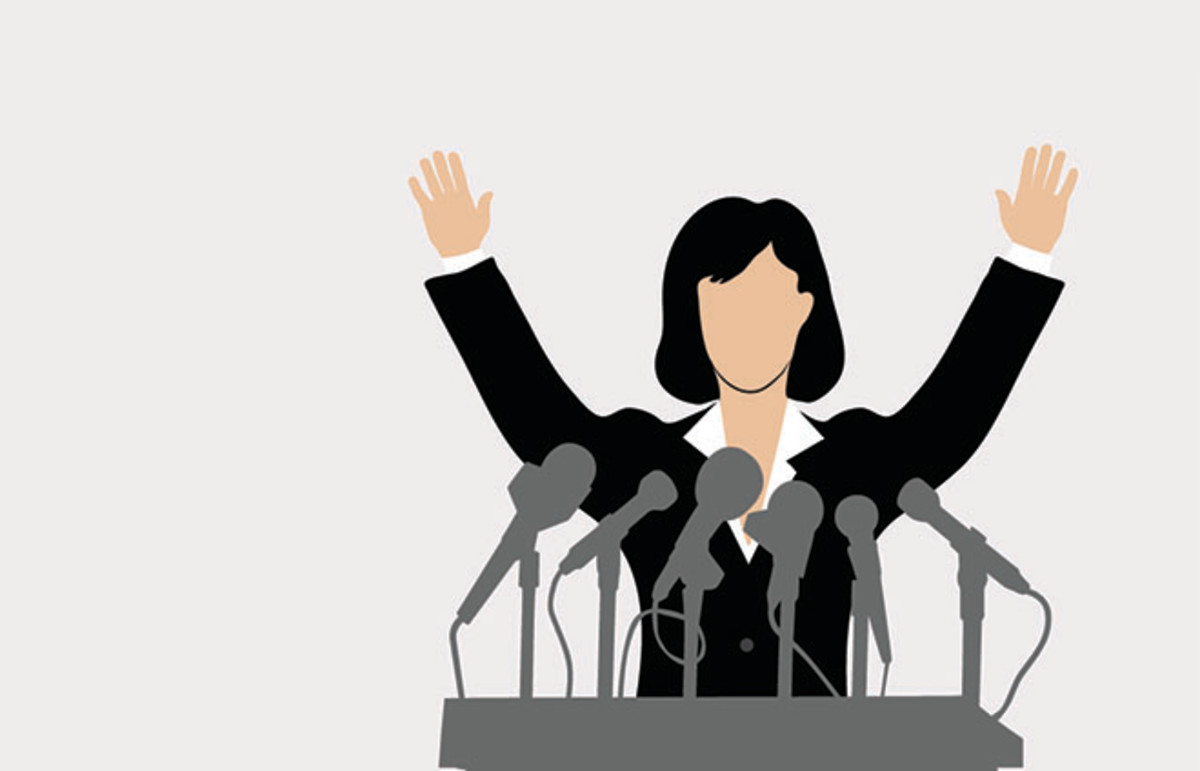Fresh off writing an article on my challenges with feminism, I felt I should keep digging further into the topic of women’s inequality. Obviously not a clear expert, I decided I would outsource my knowledge, this led me to the purchase of “The 50ft Women” by Catherine Mayer. An insightful look into a potential world of women’s equality and how gender equality can save the world. Mayer offers an insightful outlook into the term “Tokens” coined by Rosabeth Kanter. Where members of minority groups in organizations who feel uncomfortable about their difference and conform.
In essence, it made sense to me. It’s very natural for one to conform to their surroundings especially when being a minority, we see it every day and at a certain point in our own lives, we have been susceptible to it. Yet I felt there was more to this, could it be women who reach office almost feel threatened to fight for gender justice or do they simply believe it’s not worth the fight?
When talking women in politics it comes as no surprise, the first name to mention would be that of the iconic Margaret Thatcher. The UK’s first female Prime Minister and the longest-serving one of the 20th century. Often regarded as the Iron Lady in relation to her stern force and authority while in office. Margaret Thatcher changed the face of politics across the world and without a doubt motivated a lot of the women we see in power today to reach these positions, but while in power what did she do for women of her time? Not a whole lot if we’re being honest. During her term in office, Thatcher failed to promote any women to her cabinet bar, Baroness Young, a long time friend of the Prime Minister. When criticised for her lack of inclusivity, she would respond ” But no, a woman must rise through merit. There must be no discrimination”. Whether or not her excuse is warranted there is still a pattern to follow. During her tenure, the gender pay gap widened and Thatcher continued to introduce new laws that would directly affect women across the UK.
Since Thatcher, we have seen many women reach the highest offices in politics, Ireland has elected two female presidents, Germanys longest-running chancellor is female and many more successes, but we have seen very little change in the scope of gender equality. It is true to say that more women have become more involved in politics and there is a lot more legislation in place to achieve this but is it really being implemented?
Out of 193 countries, only 9 countries have at least 50% of women in the national cabinet and furthermore, its believed it will take 217 years to achieve gender parity. Ok. It’s safe to say that we will never truly achieve equal representation of women in politics, so when we see a woman get elected how much pressure resides on her to fight the injustice? A whole lot, while also dealing with the misconception that she is unfit for office.
A trend we have encountered over the years is seeing female leaders elected into positions of power amidst political turbulence. 2016 saw the first female prime minister in the UK since Thatcher, post-Brexit referendum David Cameron resigned and Theresa May was sent in to clean his mess. Another example would be South Koreas Park Geun Hye who was elected Korea’s first female president after a spell of corruption scandals, stagnant economic growth and increasing tension along the Korean peninsula. Both have since been removed from office and spent less than 4 years there. This is a pattern that persists and we can see in 11 countries women have led for less than one year.
The fact of the matter is that not enough women are given the opportunity to climb in politics, which leads to token women in office or short spells during political turmoil. This, therefore, doesn’t enable the women we see to fight for women’s rights. I don’t believe that any female politician would find gender justice to be frivolous but they are hardly given the capacity to work towards it. Often we see women reaching the highest levels of power and expect change but to achieve equal rights there must be a more collective effort of everyone in power, it is not just a woman’s job to fight for it and it shouldn’t just be up to the people who look like you to fight for you. 2008 saw America elect its first-ever black president but this didn’t mean that racism would cease to exist. It shows growth but not change and I find this to be very similar to seeing women in politics. To achieve change we must see consistency and that is a consistency of each elected official understanding that equality is fundamental not just for those it affects but for everyone.

